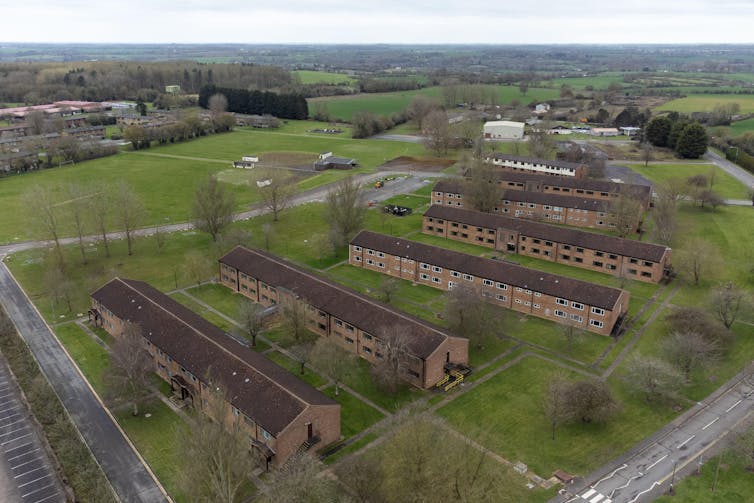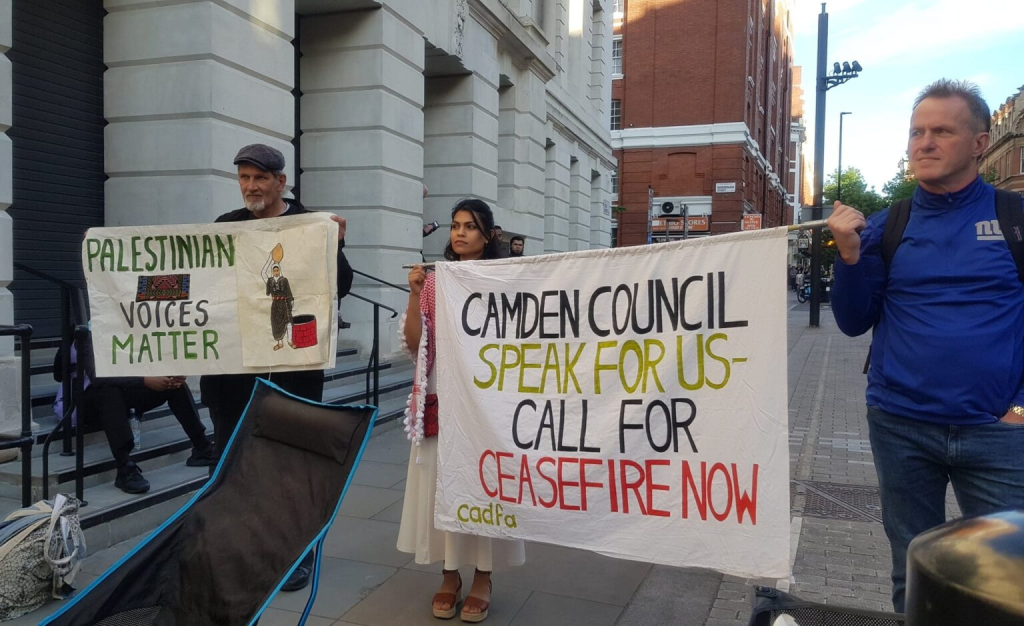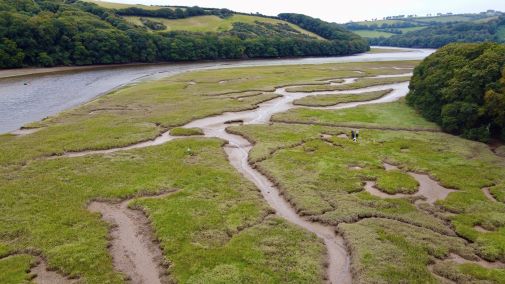There is something happening in Ireland (the Republic) and it is not pretty. It is the mobilisation by far-right actors of anti-immigration sentiment in response to a sharp increase (from a low base) in the number of asylum seekers arriving in the country. 5,160 asylum seekers came to Ireland in the first three months of this year, up nearly 78% on the same period last year. This compares with 4,780 in the whole of 2019, 3,670 in the whole of 2018 and 2,240 in the whole of 2016. The chair of the Dail’s Public Accounts Committee, Sinn Fein’s Brian Stanley, said last month that if the current pace continued it was likely there would be 20,000 for the whole of 2024, which would be a record by a considerable distance.
The reasons for this rise are complex, but there is little doubt that increasing numbers are coming from Britain, a country whose ruthless ‘stop the boats’ policy is meant to deter refugees and asylum seekers (something it has singularly failed to do). But the numbers are still very small when compared to countries like Germany (nearly 352,000 asylum claims last year, up 51% on 2022), France (167,000) and Spain (162,000). In 2023 over 270,000 migrants arrived by sea in Europe, the great majority across the Mediterranean, with Italy receiving 60 per cent of these.
So Ireland is not full – not by any wider European measure. Housing specialist Lorcan Sirr of Technological University Dublin points out that we have well over 100,000 usable empty houses and holiday homes around the country, some of them in the same cities, towns and villages where protesting locals are claiming they are full. The Department of Defence has over 20,000 acres, and local councils between them have many thousands of acres of development land. The Health Service Executive has hundreds of empty buildings. As a country, Ireland has fewer than 71 people per square kilometre. In Germany this figure is 233 people per square kilometre; in the Netherlands it is 422; in the UK it is 277.1 The Church of Ireland primate, Archbishop John McDowell, said earlier this month that populists are “playing with paranoia” on the issue of migration, but that “Ireland is not full”.
The trigger for the latest ‘moral panic’ about asylum seekers and refugees has been twofold. Minister for Justice Helen McEntee put the cat among the pigeons last month when she claimed that 80% of recent arrivals were originating in Britain and coming across the border from Northern Ireland. Tánaiste Micheál Martin, usually the most careful of men, doubled down on her comment, linking the rise in numbers crossing the Irish border to the UK’s policy (much feared among asylum seekers in Britain) of forcibly sending migrants who have entered the country without legal papers to Rwanda. British prime minister Rishi Sunak leapt on Martin’s remarks, which he interpreted as proof the Rwanda plan was already working, despite no flights to the African country having yet taken off.
Secondly, there was the growing ‘tent city’ of of asylum seekers in the streets outside and around the International Protection Office in Dublin’s Mount Street. On 1st May around 200 of these men were moved out of their tents to various sites on the outskirts of the city, notably the grounds of a former nursing home at Crooksling in the Dublin hills. The following day more tents appeared around the corner on the Grand Canal. Within days these too were moved to Crooksling and other places.The grassy banks of the canal were blocked off by security fences, but this did not stop another hundred or so tents reappearing.
The impression given was that the authorities, with no proper government plan, were making it up as they went along. Government planning in the asylum area has been either wrong-headed or non-existent ever since the discredited private sector-led (and highly profitable) Direct Provision system was introduced over 20 years ago. Labour Party leader Ivana Bacik, in whose constituency the Grand Canal is situated, said the government’s approach to single, male asylum seekers was “a complete mess”.”The current approach is causing misery to these men, it’s unsustainable and unacceptable for communities – albeit that there are brilliant local volunteers and residents supporting the men,” she said. “It is a gift to the far right.”2 [She could have added that the “brilliant volunteers” helping the men in the tents – most of them women – come mainly from the prosperous middle class suburbs of Dublin 4 and Dublin 6.]
And the far right is seizing its opportunity. Young thugs were seen abusing the men on the canal, videoing them and trying to kick down their tents. They were understandably terrified. Several far right leaders – men like Gavin Pepper and Philip Dwyer – were among those seen making videos.
On the May bank holiday I joined a counter-protest at the GPO in O’Connell Street to an anti-immigration march through the city centre. It was a depressingly big march, far larger than the “several hundred people” reported in the Irish Times, with the marchers carrying a veritable forest of Irish tricolours. I would estimate the numbers at around 3-4,000 people; it took around 45 minutes to pass the GPO. This was real evidence that fear of immigration has started to strike a chord with many ordinary Irish people who are unhappy at the chronic lack of affordable housing, the stretched health service and the high cost of living. In this, as in so many other things – good and bad – we have become mainstream Europeans, blaming immigrants and refugees for our government’s failure to provide adequate public services. Fortunately, it is unlikely that this will be reflected in the results of next month’s local and European elections, because there are simply too many small anti-immigration parties and independents fighting these (I counted 14 in the European election alone).
The tougher new public mood was confirmed by an Irish Times opinion poll in the middle of May. 63% of people polled said they favoured a “more closed policy” to deal with asylum seekers/people seeking international protection; 73% said the government should do more “to deport asylum seekers whose applications have failed”; 79% said that the government should do more “to manage the issue of immigration”; and 38% said they were likely to vote for “a candidate who voiced concerns about immigration.” However almost half of the people (46%) who expressed a view said immigration had been a positive for Ireland.3
Sinn Fein are in a particularly invidious position as asylum and immigration become a major issue in the run-up to next month’s elections, and as its support in opinion polls falls to levels last seen before the 2020 general election. The Irish Times poll showed that 44% of its supporters are likely to be impressed by a candidate voicing concerns about immigration; 70% want to see a more closed asylum policy. Sinn Fein’s problem is that – as a populist nationalist party – it contains, and is supported by, both right-wing ‘nativists’ and left-wing progressives.
Meanwhile some strange election posters have been going up in central Dublin. The Irish People, a new party registered last year, which has apocalyptic visions about “fulfilling our historic role in saving European civilisation as Irish monks did during the last dark age”, is responsible for some of the strangest. “Something is very wrong with Ireland. It’s up to the Irish people to fix it,” says one. Another, with distinct echoes of Russia and Hungary, asks “How did NGOs capture government policy and the media narrative?” A third, clearly meant to appeal to conservative Catholics, declares “a spiritual battle for the soul of Ireland.”
The picketing of politicians homes (sometimes with their wives and children alone inside) is another relatively recent phenomenon, with Leo Varadkar, Simon Harris and the Green integration minister, Roderick O’Gorman (a thoroughly decent if dreadfully overworked politician) in the firing line. The gardai seem powerless to do anything about it. Una Mullally had an alarming piece in the Irish Times in which she named three woman local election candidates from the Green party, the Social Democrats and an independent who had respectively received a death threat, been punched in the head, been screamed at while being videoed, and been called a ‘Nazi’, all while out canvassing.
Mullally correctly pointed out that “immigration is not the underlying issue. Immigration is a reality without which the very functioning of Irish society would collapse. An asylum-seeker and refugee accommodation crisis underpinned by the broader housing and rental crisis is one issue. Unaddressed racism and bigotry is another. Identity-based hatred and violence is an issue. The growth of the far-right ecosystem is an issue. The spread of online hate, disinformation and conspiracy theories, while the tech companies platforming this bile [and] headquartered here send their lobbyists to Oireachtas committees to spout spin, is an issue. Resentment over a perceived or real scarcity of resources in communities that is manipulated by far-right grifters is an issue.”4 Weak policing and lack of arrests is another issue, she added.
Refugees and asylum seekers are far more than an Irish issue, of course. The rise of the anti-immigration right is a Europe-wide phenomenon. 16 out of 27 radical right parties are polling over 20% in national opinion polls in advance of the forthcoming European Parliament elections. In nine of these, the far right party is leading in the opinion polls. Marine Le Pen’s party, National Rally (RN), is leading President Emmanuel Macron’s party by 13 points in France. Alternativ fur Deutschland is likely to come a strong second in Germany.
What can we in little Ireland do about this? Not very much, except show a little compassion and common sense to these vulnerable people who have come to live among us, some of whom will make a major contribution to the well-being of our society (as immigrants everywhere do). That fine British writer on Europe, Timothy Garton Ash, while contemplating the high security fence surrounding Spain’s African enclave of Ceuta to keep Moroccans and other Africans out, recalled impoverished farmers’ sons from Sicily and Ireland trying to reach a better life in America in times past. “We must surely accept that extreme poverty, disease and illiteracy in sub-Saharan Africa constitute constraints on individual liberty that can be every bit as life-deforming as political or religious persecution. There is a continuum, not a bright line, between the categories of refugee and migrant. In any case, with its rapidly ageing population, most of Europe needs more migrants to sustain its welfare states. At the beginning of the 2020s, Germany’s economic need for immigrants was calculated at some 400,000 a year.”
He went on: “If the gulf between global North and South widened further as a result of climate change, population growth and bad governance, no defensive fortifications would suffice. Ever more people would clamber over those fences, however high, and launch themselves onto the high seas, however rough, crying ‘Europe or death.’ What would Europe do then? Build even higher walls? Add death strips? Just let them drown? Europe’s own interests and values demand that it strive to close the huge gap between North and South.”5
N.B. A few definitions are needed here. Asylum seekers (people in need of ‘international protection’) are those who arrive in a country and claim asylum, usually under the 1951 UN Refugee Convention. Refugees are people from war-torn countries who arrive here under recognised UN, EU and other national and international schemes. Migrants are economic migrants who come for work and a new life.
1 ‘Migration debate means nothing without housing’, Irish Times, 2 May
2 Kitty Holland, ‘A Day on the Grand Canal’, Irish Times, 11 May
3 Pat Leahy, ‘Public mood on asylum seekers hardening’, Irish Times, 17 May
4 ‘Rising threat of violence against politicians needs to be tackled’, 20 May
5 Homelands: A Personal History of Europe, pp.318-320

Andy Pollak retired as founding director of the Centre for Cross Border Studies in July 2013 after 14 years. He is a former religious affairs correspondent, education correspondent, assistant news editor and Belfast reporter with the Irish Times.








